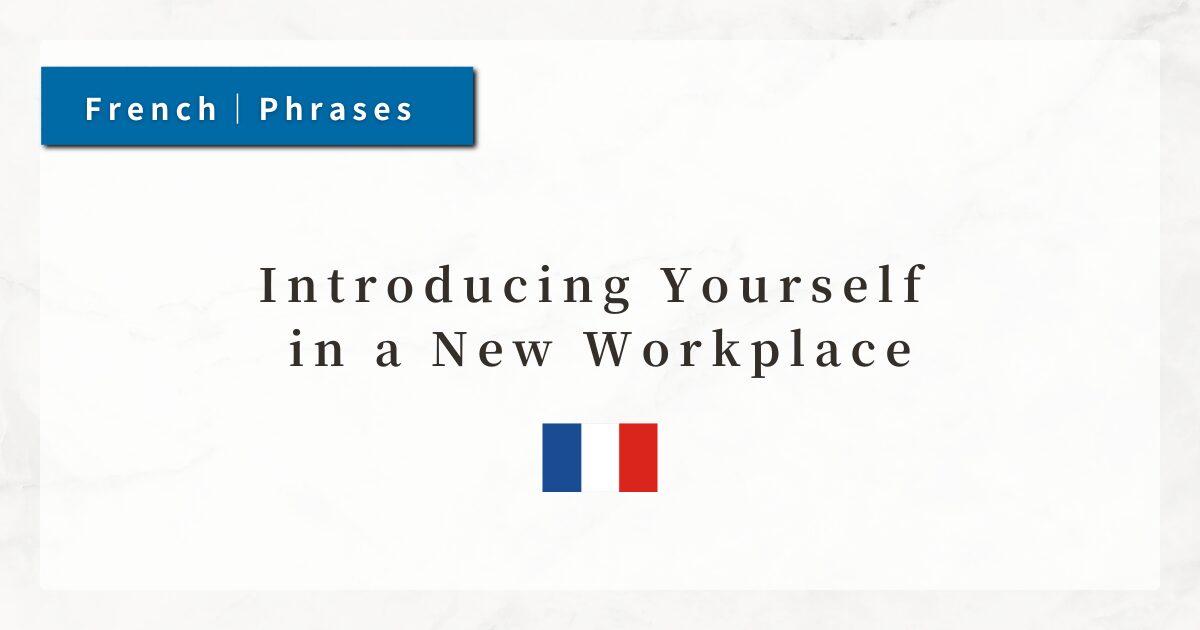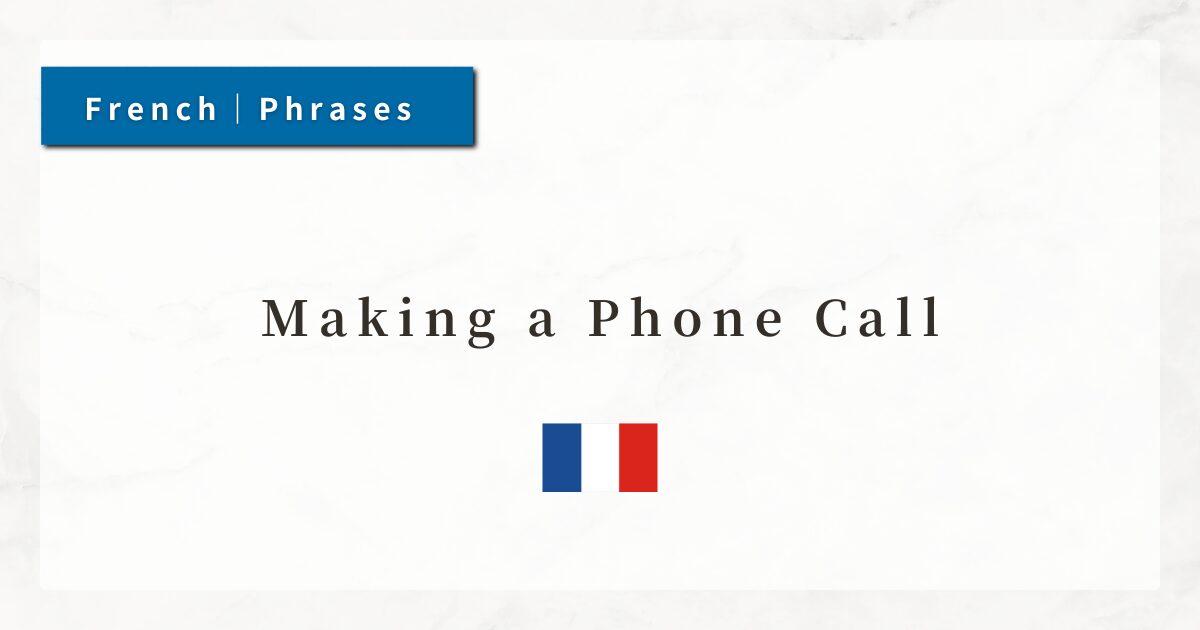#44 Introducing Yourself in a New Workplace|French Business Conversation

When starting a new job, being able to introduce yourself in French to colleagues and supervisors helps you build smooth relationships.
By learning how to briefly share your name, background, and role, you can create a good first impression and lay the foundation for trust.
Here, I will introduce useful French phrases for workplace self-introductions, along with explanations of the grammar behind them.
Dialogue

Bonjour, je m’appelle Marie Dupont. Je suis ravie de rejoindre l’équipe.
(Hello, my name is Marie Dupont. I am delighted to join the team.)

Bienvenue, Marie ! D’où venez-vous ?
(Welcome, Marie! Where are you from?)

Je viens de Lyon, mais j’habite à Paris depuis cinq ans.
(I’m from Lyon, but I’ve been living in Paris for five years

Très bien. Quel sera votre rôle dans l’entreprise ?
(Great. What will your role be in the company?)

Je vais travailler dans le service marketing.
(I will be working in the marketing department.)
1. Introducing Your Name
The most basic phrase for self-introduction is: “Je m’appelle 〜” (My name is 〜).
- Je m’appelle Marie Dupont.
(My name is Marie Dupont.)
Here, the reflexive verb s’appeler (to be called) is used. With the subject je, the reflexive pronoun m’ is added: “je m’appelle.”
In a business setting, it is customary to give both your first and last name. In casual situations, your first name alone is fine.
2. Expressing Joy at Joining a Team
When joining a company or team, a standard phrase is: “Je suis ravi(e) de rejoindre 〜” (I am delighted to join 〜).
- Je suis ravie de rejoindre l’équipe.
(I am delighted to join the team.)
The adjective “ravi(e)” means “pleased” or “delighted.” The form takes -e when the speaker is female.
The phrase “rejoindre l’équipe” means “to join the team” and is natural in professional contexts.
3. Sharing Your Background or Place of Residence
Common phrases for introductions include:
- Je viens de Lyon.
(I am from Lyon.) - J’habite à Paris depuis cinq ans.
(I have lived in Paris for five years.)
Venir de means “to come from,” used here to indicate origin. “Habiter à” means “to live in,” with à used before city names. Adding depuis expresses “since” or “for (a period of time).”
4. Explaining Your Role or Department
It is also important to state your role briefly.
- Je vais travailler dans le service marketing.
(I will be working in the marketing department.)
Here, “aller + infinitive” expresses the near future (“going to … / will …”).
The structure “dans le service 〜” means “in the 〜 department.”
- Je vais travailler dans le service comptabilité.
(I will be working in the accounting department.) - Je vais travailler dans le service commercial.
(I will be working in the sales department.)
5. Adding a Polite Closing Remark
To make a good impression, it is useful to end with a polite phrase:
- Je suis impatient(e) de travailler avec vous.
(I look forward to working with you.) - C’est un plaisir de faire votre connaissance.
(It’s a pleasure to meet you.)
These expressions convey respect and friendliness in a professional setting.
Summary
- Je m’appelle 〜
→ The most basic self-introduction. In business, use your full name. - Je suis ravi(e) de rejoindre 〜
→ Express joy in joining the workplace or team. - Je viens de 〜 / J’habite à 〜
→ Briefly share your place of origin or residence. - Je vais travailler dans le service 〜
→ Explain your role or department. - Add a polite remark
→ Expressions like “I look forward to working with you” create a positive impression.




